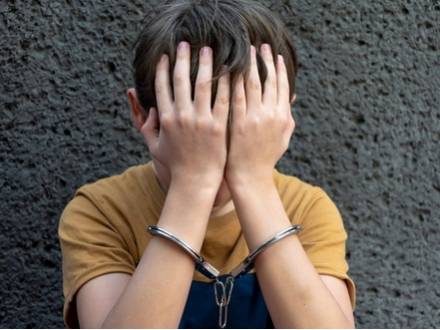How Are Juvenile Crimes Prosecuted in Illinois?
 If your child faces criminal charges, it can be a confusing and frightening time. In Illinois, juvenile crimes are usually handled differently from adult crimes. When a minor is accused of a crime, the case is generally processed through the juvenile court system. However, cases involving certain serious crimes are sometimes moved to adult criminal court. If you have questions about specific charges, our Naperville, IL criminal defense attorney can help you understand the legal system and protect your child’s rights.
If your child faces criminal charges, it can be a confusing and frightening time. In Illinois, juvenile crimes are usually handled differently from adult crimes. When a minor is accused of a crime, the case is generally processed through the juvenile court system. However, cases involving certain serious crimes are sometimes moved to adult criminal court. If you have questions about specific charges, our Naperville, IL criminal defense attorney can help you understand the legal system and protect your child’s rights.
What Is the Difference Between Juvenile and Adult Court in Illinois?
The key difference between juvenile and adult courts in Illinois is the focus of the legal process. Juvenile courts emphasize rehabilitation, education, and treatment. Under 705 ILCS 405/, known as the Illinois Juvenile Court Act, the court must consider the best interests of the minor when making decisions about their case. Juveniles usually face judges who are specially trained to work with youth, and the hearings are often more informal.
In juvenile court, judges may order probation, counseling, community service, or placement in a juvenile facility. On the other hand, in adult court, defendants face jury trials, sentencing guidelines, and harsher sentences if convicted. The main focus is on punishment and incarceration.
What Are Diversion Programs for Juvenile Offenders in Illinois?
Diversion programs are alternatives to traditional court, offering young offenders a chance to learn from their mistakes and make better choices in the future. These programs focus on counseling, education, and community service instead of punishment. If your child successfully completes a diversion program, the charges against them may be dropped or dismissed.
Illinois law encourages diversion when it is appropriate. Under 705 ILCS 405/5-210, the law permits diversion for certain offenses if it serves the best interests of both your child and the community. This is often for less serious offenses like theft, possession of small amounts of cannabis, simple assault, and minor property damage.
Are Juvenile Records Permanent in Illinois?
In many cases, juvenile records are not permanent. Illinois law, under the Juvenile Expungement Act, allows minors to petition the court to seal or expunge their records after meeting certain conditions. Sealing a record hides it from the public, while expungement erases it completely. This process helps protect minors from paying a lifelong price for mistakes in their youth.
Can a Juvenile Be Tried as an Adult in Illinois?
If your child has been charged with a serious crime like murder, aggravated assault, or certain sex offenses, it is possible they could be tried as an adult, especially if they are 15 or older. This is a very serious step, and the court will consider your child’s age and record, the nature of the offense, and their potential to be rehabilitated before making a decision. Because the consequences are much harsher in adult court, you need experienced legal representation to protect your child’s rights and help navigate this complex process.
Schedule a Free Consultation With a Naperville, IL Juvenile Crime Defense Attorney
If your child is facing criminal charges, it is never too soon to contact an experienced legal representative. Attorney Philip R. Nathe, a former Assistant State’s Attorney in DuPage County, understands the criminal justice system from both the prosecution and defense viewpoints. Recognized as one of the Best Criminal Defense Attorneys in Bolingbrook in 2023 by Expertise.com, he is well-equipped to protect your child’s rights and guide your family through this challenging time. Call 630-416-7600 today to schedule a free consultation with a trusted Naperville, IL juvenile crime defense lawyer at the Law Office of Philip R. Nathe.














